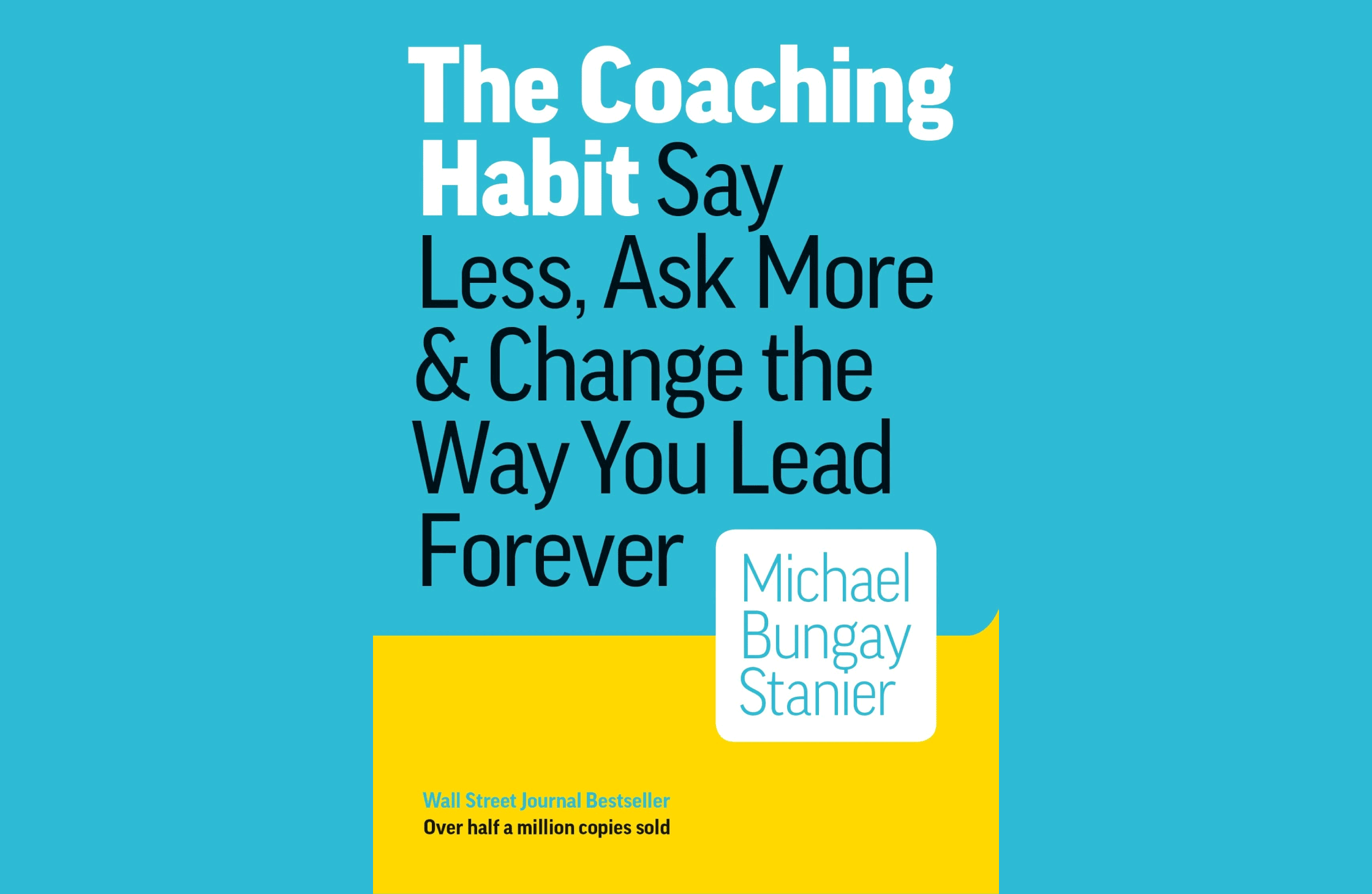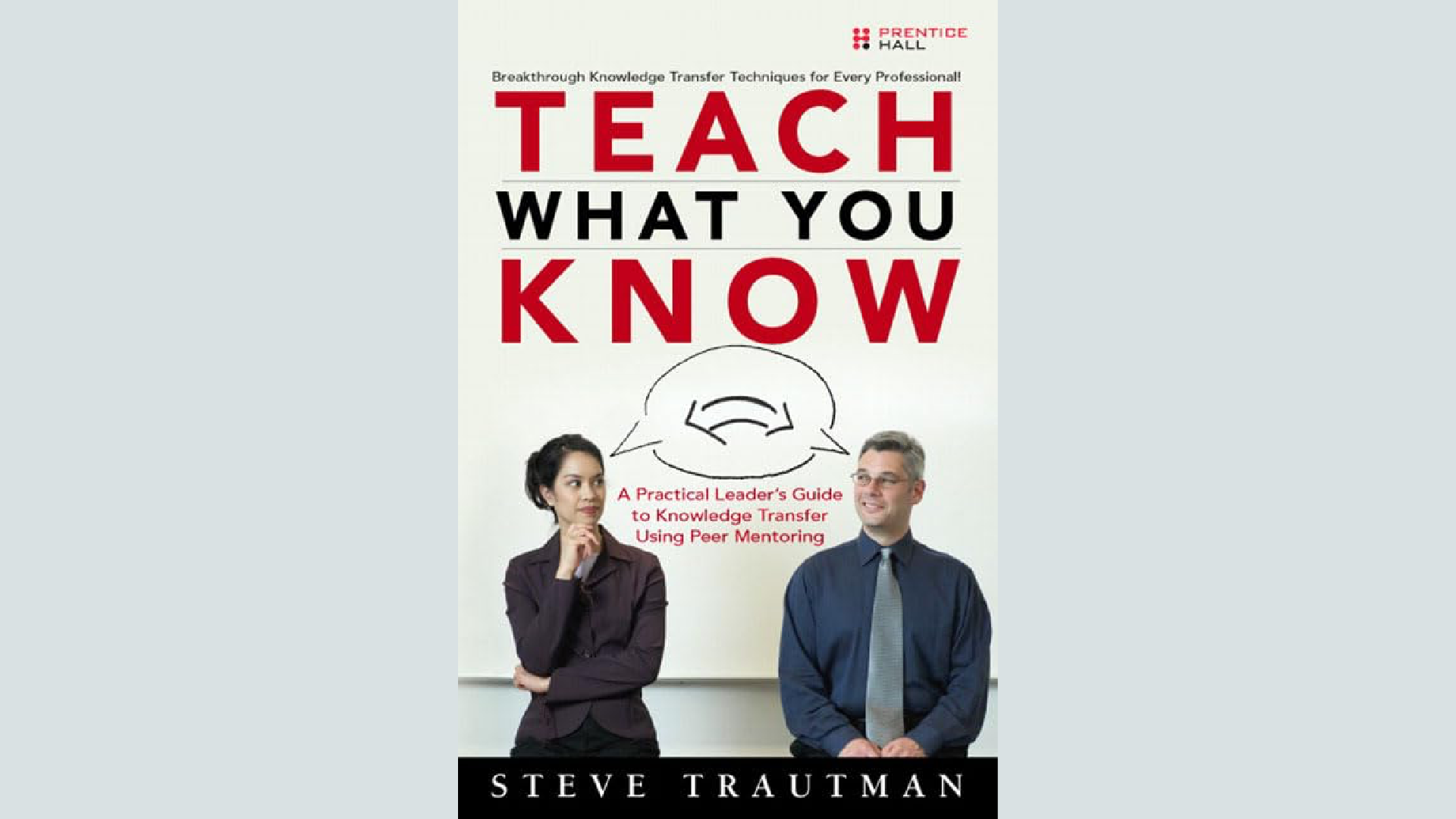You Need To Share Your Lifetime of Knowledge with People
Founders and CEOs, your most valuable asset is the knowledge you’ve gained over a lifetime. Learn to empower others by sharing wisdom through thoughtful questions, teaching, and deep listening. The Hero’s Journey inspired me.

As a founder and CEO, getting caught up in the day-to-day hustle of building a business—scaling, managing teams, and hitting revenue targets is easy. But at some point, the journey becomes less about individual success and more about what you can give back. That’s where the fundamental transformation happens: when you return from the challenges of entrepreneurship with hard-won knowledge and wisdom and realize that your most valuable contribution now is sharing it with others.
The theme of sharing your lifetime of knowledge forms the heart of this article, shaping every stage of the entrepreneurial journey and especially the “Return with the Elixir” phase of the Hero’s Journey. It’s about understanding that your success is not just for you but for others who can learn, grow, and build from it.
The Return with the Elixir: A Founder and CEO’s Journey to True Leadership
At this stage in the journey, your role as a leader shifts dramatically. It’s no longer about having all the answers or even being the one making every decision. Instead, the focus is on empowering others—your team, your peers, the next generation of entrepreneurs—with the knowledge and wisdom you’ve gathered over the years.
In my experience, the most profound leadership shift has been moving from telling to asking. Early on, I thought leadership was about providing answers. I now realize authentic leadership involves asking the right questions, listening deeply, and giving others the tools to uncover solutions.
Shift from Telling to Asking: The Power of Questions
One of the most powerful ways to share your lifetime of knowledge is by asking questions rather than giving directions. At Apollo Advisors, my go-to question is, “What’s keeping you up at night?” It’s a simple yet efficient way to open up conversations about the real challenges people are facing.
By focusing on questions, I’m not just offering solutions. I’m creating space for CEOs, founders, and leaders to explore their thoughts, fears, and motivations. Asking questions empowers people to reflect, think critically, and ultimately find the best way forward themselves.
“True leadership is not in having all the answers, but in asking the right questions that empower others to find their own.”
By Teaching, You Truly Learn: Mastery Through Sharing Knowledge
Another powerful way to share your knowledge is through teaching. Early on, I didn’t realize that much of what I knew was still unrefined. I realized how much deeper my understanding needed to go when I started writing about topics, recording podcasts, and creating courses. By teaching, I solidified and simplified my knowledge, making it easier for others to grasp.
Teaching forces you to clarify your thoughts, refine your ideas, and truly master the subjects you’ve spent a lifetime learning. More importantly, it allows you to pass that knowledge on in a way that’s accessible and meaningful to others. And it’s not just about delivering knowledge—it’s about timing it right, knowing when someone is ready to receive it.
“You only truly understand what you know when you can teach it in a way that makes others believe they can do it too.”
Listening: A Path to Insightful Leadership
Listening has become one of the most essential tools in my leadership toolkit. It’s the difference between surface-level interactions and truly transformative conversations. When I ask a CEO or founder, “What’s keeping you up at night?” and listen to their response, I can dig deeper into the issues that matter most.
Listening allows me to understand the spoken concerns and the unspoken fears and aspirations that drive those concerns. In this way, I’m able to tailor my guidance more effectively. Leaders today need more than just advice—they need someone to hear them truly and, through that process, help them discover their answers.
“A company thrives when its leaders know when to speak and, more importantly, when to listen.”
Creating the “Elixir” through Reflection and Teaching
The “elixir” that I return with is not just a thriving business or market success—it’s the ability to synthesize my experiences into lessons that benefit others. Over the years, I’ve learned that the most significant contribution I can make is to reflect on what I’ve learned, refine that knowledge, and teach it to those who need it.
Through writing, speaking, mentoring, and sharing my journey, I’ve found that teaching solidifies the wisdom I’ve gained, allowing me to make a more significant impact. It’s not just about accumulating knowledge—it's about making it accessible, actionable, and easy for others to integrate into their journeys.
Sustaining Innovation and Long-Term Vision
Returning with the elixir also means guiding your company with a broader vision. The challenge isn’t just to stay in the game and evolve, innovate, and empower others to lead. The long-term success of your company lies in the ability to teach, guide, and let others rise into leadership roles.
As I’ve shifted my role from hands-on founder to more of a mentor, I’ve realized that a company’s real strength comes from its people. When you share your lifetime of knowledge, you create future leaders who are empowered, innovative, and capable of driving the business forward.
Book Recommendations for Founders and CEOs: Mastering Leadership and Knowledge Transfer
As a founder or CEO, your journey isn’t just about reaching success—it’s about passing on the knowledge you’ve gained. Leadership today requires more than just operational expertise or decision-making skills. It’s about empowering others, asking the right questions, and fostering a culture of learning and growth. In the spirit of mastering leadership and ensuring that your wisdom is shared and amplified, I recommend two books that have been transformative for me: “The Coaching Habit” by Michael Bungay Stanier and “Teach What You Know” by Steve Trautman.
These books cover two essential pillars of leadership: the art of empowering others through thoughtful questioning and the importance of teaching to master and pass on your knowledge.

1. The Coaching Habit: Say Less, Ask More & Change the Way You Lead Forever by Michael Bungay Stanier
“The Coaching Habit” by Michael Bungay Stanier is an absolute game-changer for leaders who want to step back from the constant need to provide solutions and instead focus on empowering their team through insightful questioning. The book emphasizes a coaching approach where asking the right questions allows others to unlock their potential, think more critically, and take ownership of the outcomes.
One of the book’s central ideas is that we often default to offering advice or answers when a team member presents a problem. Stanier teaches leaders to resist this urge. Instead, he advises asking questions that help others reflect on their challenges. This shift from telling to asking fosters autonomy and creativity. One of the book’s most consequential questions is, “What’s the real challenge here for you?” This question, which digs more than the standard “What’s wrong?” helps leaders uncover the real issues that must be addressed. This idea resonated with me, especially when I asked the leaders and CEOs I work with, “What’s keeping you up at night?” It opened up far more meaningful conversations than if I had offered advice. Asking more, rather than telling, gives space for others to find their answers—and often, they are far better suited to solve their problems than you could be.
Stanier highlights that the best leaders are those who coach rather than direct. By helping your team think through their challenges with thoughtful, well-placed questions, you shift the ownership of the solution onto them. This leads to a more engaged and proactive workforce, where employees feel empowered to take charge of their roles and drive outcomes. This approach has transformed my leadership style. I’ve realized that when I ask questions like “What would success look like for you here?” I help my team think more strategically about their decisions than simply following orders.
As a founder, you’re often the problem-solver by default. It’s tempting to step in and fix things. However, “The Coaching Habit” shows us that the real power of leadership lies in empowering others to find solutions themselves. When you share your lifetime of knowledge not through answers but through asking questions that foster deep thinking, you’re creating a culture of independence and growth. Whether you’re coaching a direct report, mentoring other entrepreneurs, or guiding your executive team, this book is a must-read for founders who want to foster greater autonomy, innovation, and long-term success in their organizations.

2. Teach What You Know: A Practical Leader’s Guide to Knowledge Transfer Using Peer Mentoring by Steve Trautman
The second book, “Teach What You Know” by Steve Trautman, focuses on the importance of knowledge transfer within organizations. Trautman emphasizes that one of the most valuable things a leader can do is ensure their hard-won knowledge doesn’t stay locked in their head. Sharing what you know—through structured mentoring, teaching, and knowledge transfer—is critical to building an organization that can thrive and grow beyond just one person’s leadership.
One of the central lessons from this book is that you only truly master a subject when you can teach it to others. This hit home for me, as I found that no matter how much I thought I understood a concept, it wasn’t until I tried to write about it, record a podcast, or mentor someone on it that I deepened my understanding. Teaching forces you to refine your thinking, clarify your thoughts, and organize complex ideas into something more straightforward and actionable.
This book provides a practical framework for how to structure that teaching, ensuring that your knowledge doesn’t just stay in your head but is shared in a way that empowers others to act on it. Trautman shows that teaching isn’t just about giving information—it’s about making the complex simple and ensuring that your knowledge can be transferred in a way that sticks. When you teach effectively, you create a ripple effect within your organization, enabling others to learn from your experiences and make decisions without relying solely on you.
A key concept in the book is the idea of peer mentoring as a tool for knowledge transfer. Trautman provides detailed strategies for leaders to pass on their expertise in a consistent and scalable way. Peer mentoring allows companies to create a culture where learning is continuous, and expertise isn’t concentrated at the top. This concept transformed how I approached teaching within my organization. Rather than trying to mentor everyone personally, I developed structured programs where peer leaders could teach others based on their learning. This frees up my time and ensures that knowledge is widely shared, creating a more resilient and adaptive organization.
One of the book’s key takeaways is the importance of timing in teaching. Not every moment is the right time to transfer knowledge, and not everyone is ready to receive it. As a leader, it’s crucial to recognize when someone is truly ready to learn and absorb what you’re teaching. This ensures that your lessons don’t fall on deaf ears and that they make a lasting impact.
For founders and CEOs, teaching effectively is a critical component of leadership. You’ve gained a lifetime of knowledge from navigating your business through tough times, finding new markets, and scaling operations. But the actual value of that knowledge is in how you pass it on to others. When you teach, you don’t just help others—you strengthen your mastery of the subject. “Teach What You Know” provides the tools to systematize knowledge transfer, ensuring that your organization thrives even when you cannot provide all the answers. It’s a critical read for any leader who wants to create a legacy of learning, growth, and empowerment within their company.
Why These Books Matter for Leaders Who Want to Share Their Knowledge
As founders and CEOs, we accumulate a lifetime of knowledge through our successes, failures, and everything. However, the accurate measure of leadership is in how you share that knowledge. “The Coaching Habit” and “Teach What You Know” offer practical, actionable insights for leaders looking to make a lasting impact. They teach us that empowering others through questions and mastering what we know through teaching are the keys to effective, long-term leadership.
Sharing your knowledge is not just an act of generosity—it’s a strategic move that ensures your company, your team, and the people around you are equipped to succeed long after you’ve moved on to the next challenge. If you’re ready to take your leadership to the next level, these books will guide you from a problem-solver to a mentor, from a doer to a teacher, and from a leader to someone who builds leaders.

Case Study: Richard Branson – Empowering Future Entrepreneurs
Sir Richard Branson, the charismatic founder of Virgin Group, is one of the most iconic entrepreneurs of our time. His ventures span industries such as airlines, music, and space travel. However, beyond his achievements in business, Branson is best known for his relentless spirit of adventure, ability to disrupt entire industries, and passion for mentoring the next generation of entrepreneurs. In the context of the “Return with the Elixir” stage of the Hero’s Journey, Branson’s career exemplifies how a founder can create lasting success and share their lifetime of knowledge with others to empower future entrepreneurs.
Background: Richard Branson’s Entrepreneurial Journey
Branson’s entrepreneurial career began at a young age, starting with creating a student magazine. His first successful business venture followed this—a mail-order record business that led to the formation of Virgin Records. With an adventurous mindset and a willingness to take risks, Branson quickly expanded his Virgin brand into various industries. Today, Virgin Group controls more than 400 companies across sectors such as music, travel, telecommunications, healthcare, and even space exploration with Virgin Galactic.
Branson’s success was never guaranteed. Many of his ventures were born out of challenges or disruptions in the market. For example, when Branson founded Virgin Atlantic, he was not merely launching an airline—he was challenging the established norms of the aviation industry, providing better customer service and more competitive pricing than the industry giants. Similarly, with Virgin Galactic, Branson set his sights on the space tourism market long before it became a mainstream possibility.
However, what truly sets Branson apart is his audacity to venture into new industries and his philosophy of sharing his journey and empowering others. He’s a leader who embodies the idea that success isn’t just measured by personal achievement—it’s also about giving back by mentoring, teaching, and encouraging others to follow their entrepreneurial dreams.
The Power of Asking Questions: Branson as a Curious Leader
Richard Branson’s leadership style aligns closely with the principles of The Coaching Habit by Michael Bungay Stanier. One of Branson’s most notable traits is his curiosity. Rather than micromanaging his businesses, Branson empowers his teams by asking the right questions and encouraging innovation at every level. He is known for fostering a culture of creativity, where employees are free to think outside the box and take risks.
Branson’s leadership philosophy is built on the foundation of trust and empowerment. He doesn’t see himself as someone who has all the answers. Instead, he uses questions to spark creativity and problem-solving within his teams. This is a central tenet of coaching-based leadership—asking insightful questions and encouraging people to reflect, analyze, and discover solutions independently. Branson often says that he is a “hands-off” leader. By stepping back and asking his teams the right questions, he gives them the autonomy to make decisions, innovate, and learn from their mistakes.
For example, when launching Virgin Atlantic, Branson famously asked his team what passengers wanted in an airline. By focusing on customer experience and asking the right questions, Virgin Atlantic disrupted the airline industry with better service and a more customer-centric approach. This practice of asking powerful questions and listening deeply to the answers helped Branson lead Virgin to success in industry after industry.
In the same vein, Branson is known for asking the question, “What’s next?” He’s always looking for the next opportunity or challenge, pushing his teams to think beyond the present and into the future. This sense of curiosity and forward-thinking has enabled him to innovate consistently and disrupt traditional markets.
Teaching Through Action: Branson as a Mentor and Educator
In addition to his curious leadership style, Richard Branson exemplifies the lessons in Teach What You Know by Steve Trautman. Branson is not just a successful entrepreneur; he’s a committed mentor, teacher, and advocate for young business leaders. He has spent much of his career sharing his experiences, successes, and failures with others, creating a ripple effect of entrepreneurial growth.
Branson has authored numerous books on entrepreneurship and leadership, sharing his insights in an accessible and often humorous way. In his memoir, Losing My Virginity, Branson opens up about the risks he’s taken, his mistakes, and the lessons he’s learned throughout his entrepreneurial journey. This transparency makes his story a personal triumph and a source of guidance for other aspiring entrepreneurs.
Through his books, public speaking engagements, and media appearances, Branson has created invaluable resources for anyone looking to start or grow a business. He has also been active in building platforms for future entrepreneurs. One notable example is Virgin StartUp, a non-profit organization Branson founded to support and mentor entrepreneurs in the UK. Virgin StartUp provides funding, mentorship, and resources to early-stage businesses, directly empowering the next generation of founders.
Branson’s teaching extends beyond formal mentorship platforms. He regularly shares his thoughts on business and leadership through his blog and social media, offering advice and encouragement to entrepreneurs worldwide. This aligns perfectly with the concept that you only truly master a subject when you can teach it to others. Branson’s willingness to share his knowledge and belief in the importance of teaching have made him an influential figure far beyond his business ventures.
Branson and the “Return with the Elixir”
Richard Branson’s entrepreneurial journey exemplifies the “Returning with the Elixir” idea from the Hero’s Journey. After decades of building an empire, Branson has returned with personal success, a wealth of wisdom, and a deep desire to give back to the community of entrepreneurs. He has moved from being an entrepreneur who thrives on creating and building businesses to a mentor who invests in the next generation of leaders.
One of the most remarkable aspects of Branson’s legacy is his focus on mentoring and sharing his lifetime of knowledge. Whether through writing, public speaking, or direct mentoring, Branson continually returns to the entrepreneurial community with insights that can help others succeed. His efforts with Virgin StartUp demonstrate his belief that it’s not enough to build a successful business—true success lies in assisting others to create their paths to success.
Beyond mentoring, Branson’s focus on giving back extends to philanthropy and social responsibility. Branson has committed to supporting initiatives to create positive social and environmental change through the Virgin Unite Foundation. This further cements his role as a leader who has not only returned with the “elixir” but who uses it to drive positive change in the world, both in business and beyond.
Lessons from Richard Branson’s Journey
Richard Branson’s career is a masterclass in how founders and CEOs can embrace the “Return with the Elixir” phase. Branson shows that authentic leadership is about personal success and empowering others to succeed. Branson has created a legacy that transcends his business ventures through his commitment to curiosity, his focus on teaching and mentorship, and his dedication to giving back.
For founders and CEOs, Branson’s journey offers critical lessons:
• Ask the Right Questions: Branson’s leadership style is built on asking the right questions and encouraging innovation. Instead of providing answers, he empowers his teams to think critically and take ownership of their solutions.
• Teach and Share Your Knowledge: Branson’s willingness to share his experiences, both successes and failures, is a vital part of his leadership legacy. By teaching others through his books, talks, and mentorship programs, he ensures that the next generation of entrepreneurs benefits from his knowledge.
• Return with the Elixir: After achieving business success, Branson has focused on giving back, whether through mentoring young entrepreneurs, investing in start-ups, or driving philanthropic initiatives. His story illustrates the importance of using the wisdom gained from experience to empower and uplift others.
Richard Branson is more than an entrepreneur—he’s a teacher, a mentor, and a visionary leader who has returned with the elixir to share with the world. His life and career provide a powerful example for founders and CEOs looking to create a lasting impact, not just through their businesses but by empowering the next generation of leaders.
Call to Action: Share Your Knowledge, Empower the Future
Richard Branson’s journey shows that authentic leadership is more than personal success—it’s about sharing the knowledge you’ve gained to empower others. Whether you’re a seasoned founder or a new CEO, now is the time to reflect on your experiences. How can you mentor, teach, and give back to the next generation of leaders? Don’t keep your insights to yourself—share them and watch your impact grow beyond your business.
Start today—ask more, teach what you know, and help others succeed.



